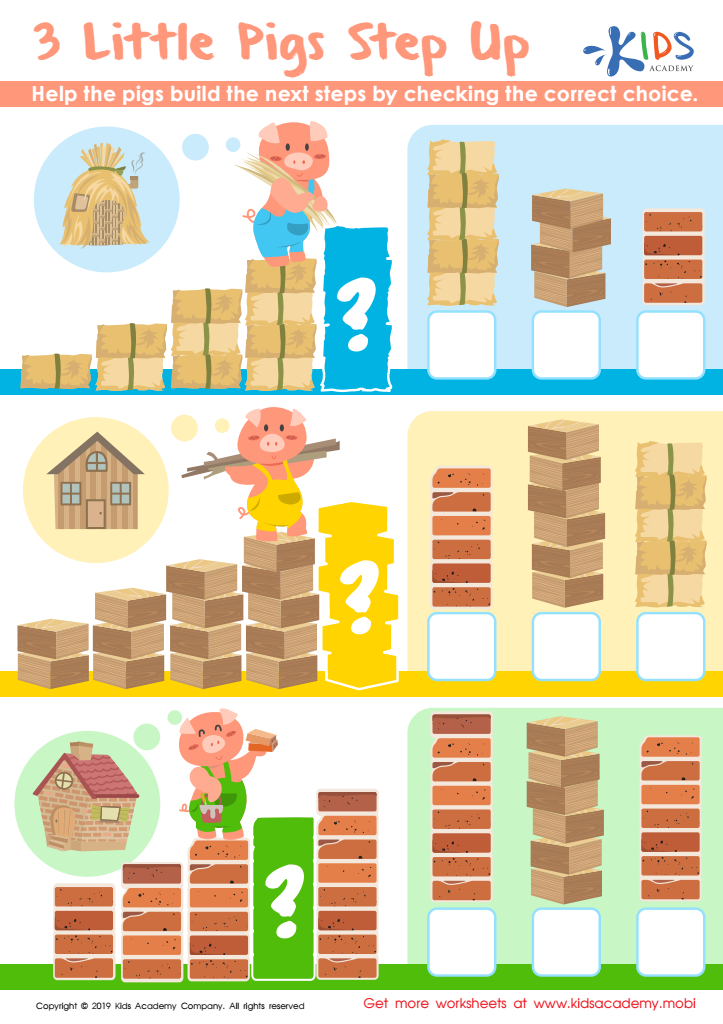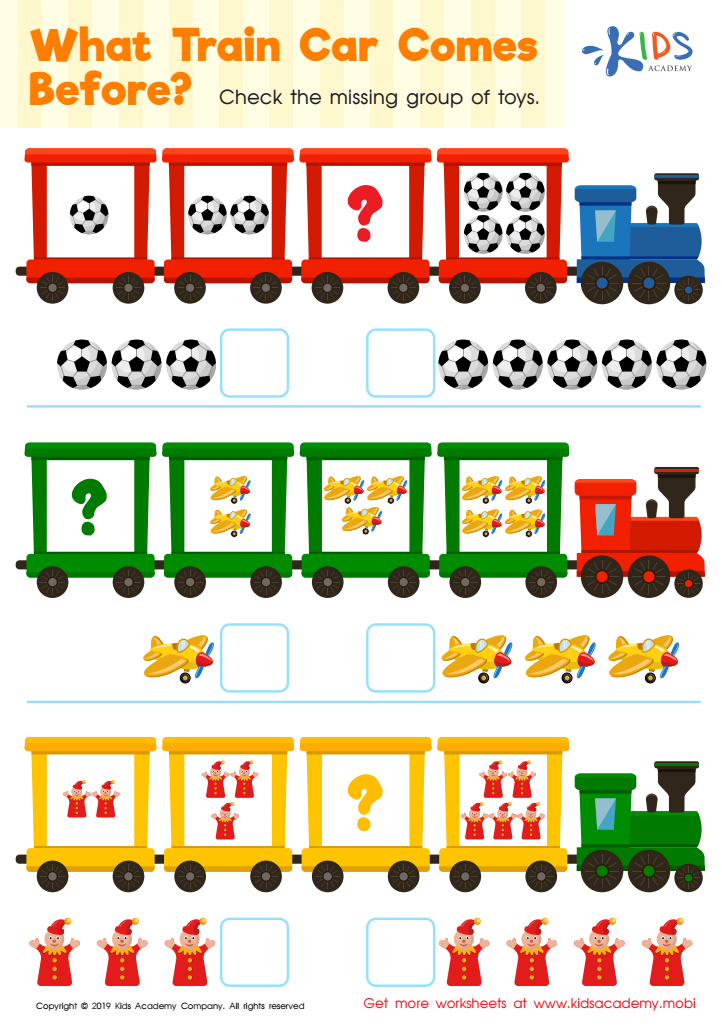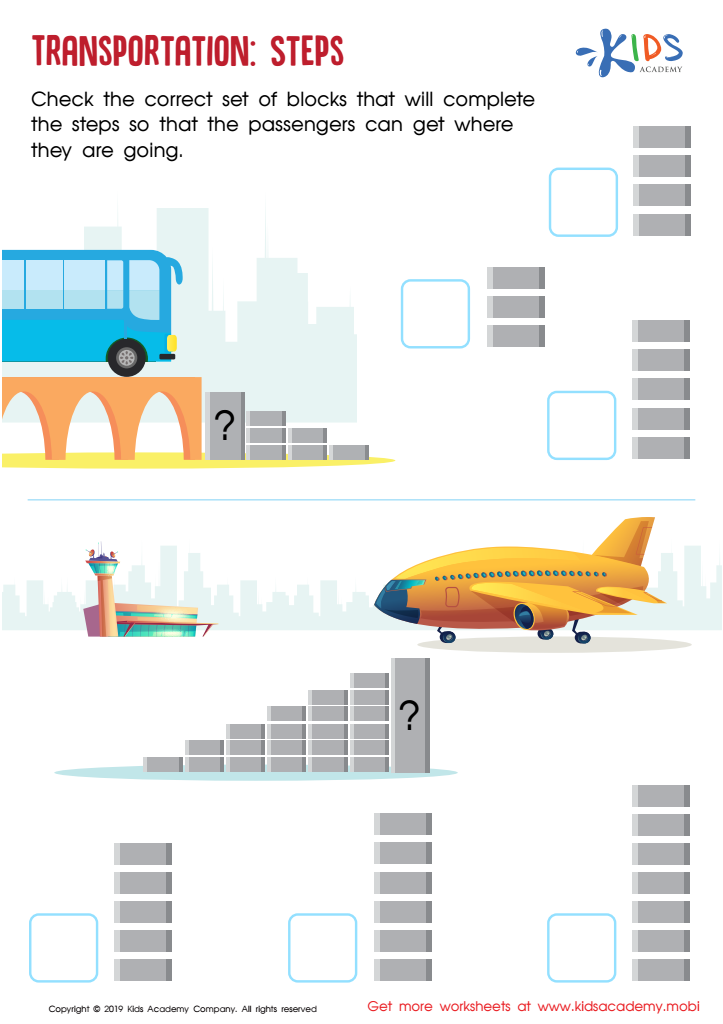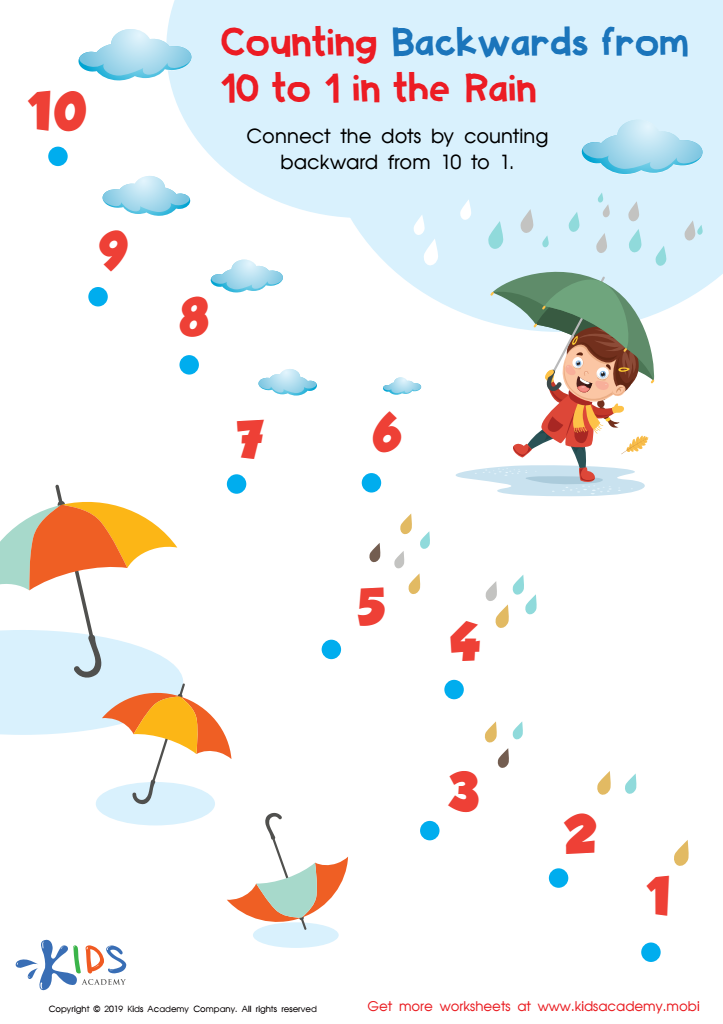Sequencing Skills Easy Math Worksheets for Ages 3-4
4 filtered results
-
From - To
Help your preschooler enhance their sequencing skills with our easy math worksheets for ages 3-4. Designed specifically for young learners, these engaging activities will teach your child to recognize patterns, understand the order of events, and improve critical thinking. Packed with colorful illustrations and fun exercises, our sequencing worksheets provide a playful learning experience that makes grasping essential concepts enjoyable. Perfect for home or classroom use, these worksheets lay a strong foundation for math proficiency. Visit Kids Academy now and start developing your child’s sequencing skills with practices that make learning effortless and interactive. Encourage early success in math today!


3 Little Pigs Step Up Worksheet


What Train Car Comes Before? Worksheet


Transportation: Steps Worksheet


Counting Backwards from 10 to 1 in the Rain Worksheet
Sequencing skills are fundamental for children aged 3-4, serving as crucial building blocks for both academic and everyday life success. These skills involve the ability to understand and organize events in a logical order, which is essential for effective problem-solving, comprehension, and memory retention.
Early math sequencing introduces young learners to the concept of order, which is a prelude to understanding more complex mathematical ideas such as patterns, counting, and basic arithmetic. When children practice sequencing in a math context, they begin to recognize that numbers follow a specific pattern, laying the groundwork for all future mathematical learning.
For parents and teachers, fostering good sequencing skills through easy math activities offers significant developmental benefits. It enhances cognitive abilities such as logical thinking and attention to detail. Skills in sequencing also aid language development and literacy, as understanding the sequence of events in a story translates to better reading comprehension. Moreover, these activities support motor skills and hand-eye coordination when engaged in physical counting activities or arranging objects.
In essence, prioritizing sequencing skills in early childhood education equips young children with the necessary cognitive tools to tackle various subject areas with confidence and improves their overall developmental trajectory. It helps build a solid foundation that will benefit their educational journey for years to come.
 Assign to My Students
Assign to My Students




















